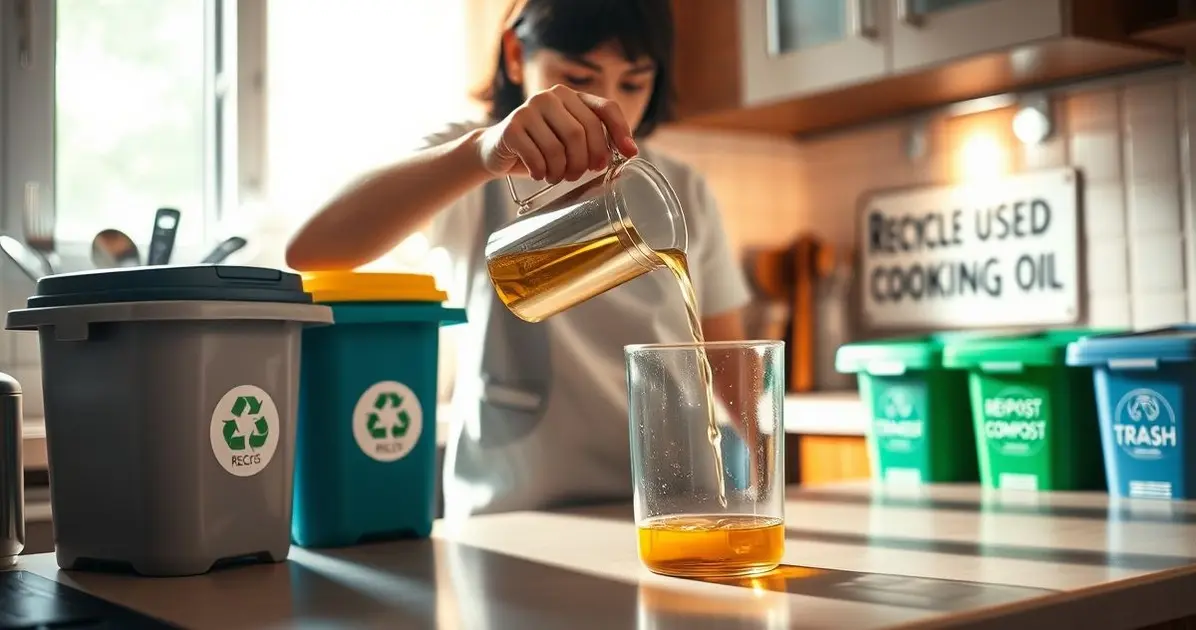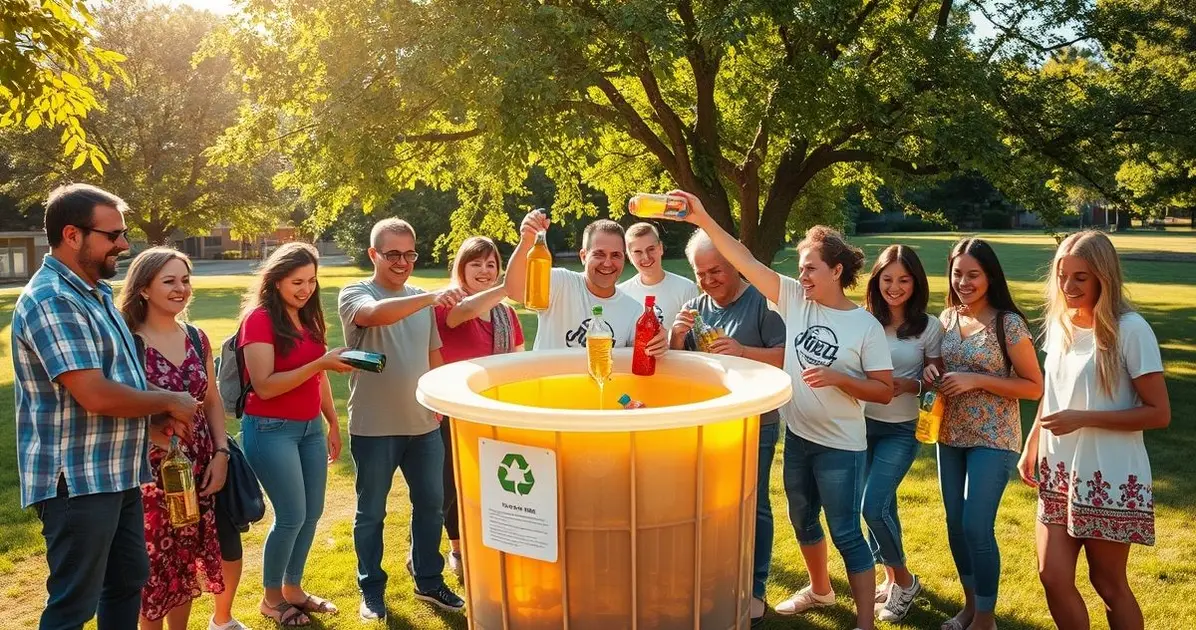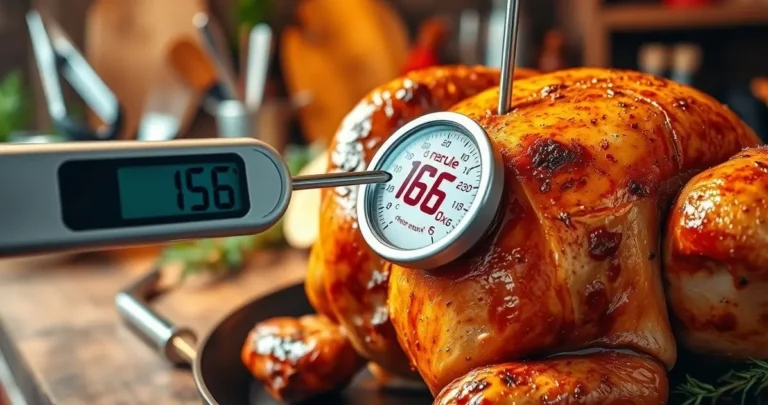Proper disposal of used cooking oil is crucial for protecting the environment and preventing plumbing issues. Learn effective ways to recycle or dispose of it responsibly.
How to dispose of used cooking oil

Used cooking oil should never be poured down the drain as it can cause severe plumbing problems. Instead, look for recycling programs in your area or store it in a sealed container until it can be disposed of correctly. Alternatives include using it for composting or donating it for biodiesel production.
Why Proper Disposal Matters
When it comes to disposing of used cooking oil, many people might not realize the significant impact their choices can have on the environment. Here are a few reasons why proper disposal is crucial:
Protecting Waterways: Pouring cooking oil down the drain can lead to clogged pipes and sewer systems. This not only causes plumbing issues in homes but can also result in oil entering local waterways, harming aquatic life and ecosystems.
Preventing Wildlife Harm: When oil spills into natural habitats, it poses a severe threat to wildlife. Animals can ingest the oil, leading to health problems or even death. Birds, in particular, are affected as oil coats their feathers, reducing their ability to insulate and fly.
Reducing Pollution: Improper disposal of cooking oil contributes to pollution. By ensuring that oil is disposed of correctly, we can reduce the amount of waste that ends up in landfills and waterways, promoting a cleaner environment.
Supporting Recycling Efforts: Many recycling facilities accept used cooking oil to convert it into biodiesel—a renewable energy source. By disposing of your oil properly, you’re contributing to sustainable practices and helping reduce reliance on fossil fuels.
Community Responsibility: Proper disposal of cooking oil is part of being a responsible community member. By taking the time to dispose of oil correctly, you’re setting a positive example for others and encouraging everyone to be more environmentally conscious.
In summary, proper disposal of used cooking oil is essential for environmental health, wildlife safety, and community responsibility. Taking a few extra steps can make a significant difference!
Eco-Friendly Disposal Methods
Choosing eco-friendly methods for disposing of used cooking oil not only helps the environment but also promotes sustainability in our communities. Here are some effective eco-friendly disposal methods to consider:
Recycling Centers: Many cities have recycling programs that accept used cooking oil. These centers often convert the oil into biodiesel, a cleaner alternative to fossil fuels. Check with your local waste management or recycling center for specific guidelines on how to drop off your oil.
Composting with Caution: If you’re using small amounts of cooking oil, you can add it to your compost pile. However, be mindful not to overdo it—too much oil can disrupt the composting process. A few tablespoons mixed with other compostable materials can enhance the compost without causing issues.
Community Collection Events: Keep an eye out for local collection events. Many communities organize special days to collect hazardous materials, including cooking oil. Participating in these events is a great way to dispose of oil responsibly while engaging with your community.
Oil Collection Services: Some companies specialize in collecting used cooking oil from restaurants and households. These services ensure that the oil is disposed of or recycled properly. If you have a large quantity of oil, look for local businesses that offer this service.
By adopting these eco-friendly disposal methods, you contribute to a healthier planet and promote sustainable practices in your community. Every action counts, and together we can make a difference!

Recycling Used Cooking Oil
Recycling used cooking oil is one of the most environmentally friendly ways to dispose of it. Instead of letting it go to waste, you can turn it into a valuable resource. Here’s how the recycling process works and why it’s beneficial:
Understanding the Process: When you recycle used cooking oil, it is collected and processed at recycling facilities. The oil is filtered to remove food particles and impurities, and then it can be converted into biodiesel—a renewable energy source that can power vehicles and equipment.
Environmental Benefits: Recycling cooking oil reduces waste and helps decrease pollution. By converting oil into biodiesel, we reduce the need for fossil fuels, leading to lower greenhouse gas emissions. It’s a win-win for the environment!
Supporting Local Economies: Many recycling facilities are local businesses that create jobs and contribute to the economy. By recycling your used cooking oil, you support these businesses and promote sustainable practices in your community.
How to Recycle: To recycle your cooking oil, first let it cool and strain it to remove any food debris. Then, store it in a sealed container and take it to a local recycling center that accepts cooking oil. You can often find this information on your city’s waste management website.
Participating in Local Programs: Some communities have specific programs or partnerships with recycling companies to make it easier for residents to recycle cooking oil. Look for local initiatives that encourage recycling and participate actively.
Recycling used cooking oil not only helps the environment but also promotes a circular economy where waste is minimized and resources are reused. By taking the time to recycle, you’re making a positive impact on both your community and the planet!
Tips for Reusing Cooking Oil
Reusing cooking oil can be a great way to save money and reduce waste, but it’s essential to do it safely and effectively. Here are some helpful tips for reusing cooking oil:
Strain Before Storing: After cooking, allow the oil to cool and then strain it through a coffee filter or cheesecloth to remove food particles. This helps keep the oil cleaner and extends its usability.
Store Properly: Use a clean, dry container with a tight-fitting lid to store your reused oil. Glass jars or bottles work well. Label the container with the date and type of oil to keep track of its freshness.
Limit Reuse: It’s best to reuse oil only a few times, especially if it has been used for frying foods with strong flavors or high moisture content. Generally, oil used for frying similar foods can be reused, but be cautious if it starts to smell rancid or develops a dark color.
Monitor for Signs of Deterioration: Before reusing oil, check for any off smells, excessive cloudiness, or a thick texture. If the oil shows any of these signs, it’s best to discard it rather than reuse it.
Use for Similar Cooking Methods: To maintain the best flavor and quality, reuse oil for frying similar foods. For example, if you fry potatoes in oil, it’s best to reuse that oil for frying more potatoes or similar items.
By following these tips, you can safely reuse cooking oil, reducing waste and saving money while still enjoying delicious meals!
Conclusion
In conclusion, proper disposal and reuse of used cooking oil are essential for protecting our environment and promoting sustainability. By understanding the importance of safe disposal methods, recycling, and reusing oil, we can significantly reduce our impact on the planet.
From recycling used cooking oil into biodiesel to utilizing eco-friendly disposal methods, every action contributes to a healthier ecosystem. Additionally, by following tips for reusing cooking oil, you can save money while minimizing waste.
Let’s commit to making responsible choices when it comes to cooking oil disposal. Together, we can foster a cleaner, greener community for future generations!
FAQ – Frequently Asked Questions about Cooking Oil Disposal
Why is it important to dispose of cooking oil properly?
Proper disposal prevents clogged pipes, protects wildlife, and reduces pollution in our waterways.
What are some eco-friendly methods for disposing of used cooking oil?
You can recycle it at local centers, mix it with absorbent materials, or participate in community collection events.
Can I reuse cooking oil?
Yes, but make sure to strain it, store it properly, and monitor for any signs of deterioration before reusing.
How can I recycle used cooking oil?
Cool the oil, strain it, and take it to a local recycling center that accepts cooking oil for biodiesel production.
What should I do if the oil smells bad or looks cloudy?
If the oil has an off smell or is cloudy, it’s best to discard it instead of reusing it.
Is it safe to add used cooking oil to my compost?
You can add small amounts to compost, but avoid overdoing it as too much oil can disrupt the composting process.
See more
Discover plenty of easy and delicious recipes you can make at home, from hearty dinners to indulgent desserts and wholesome breakfasts.




